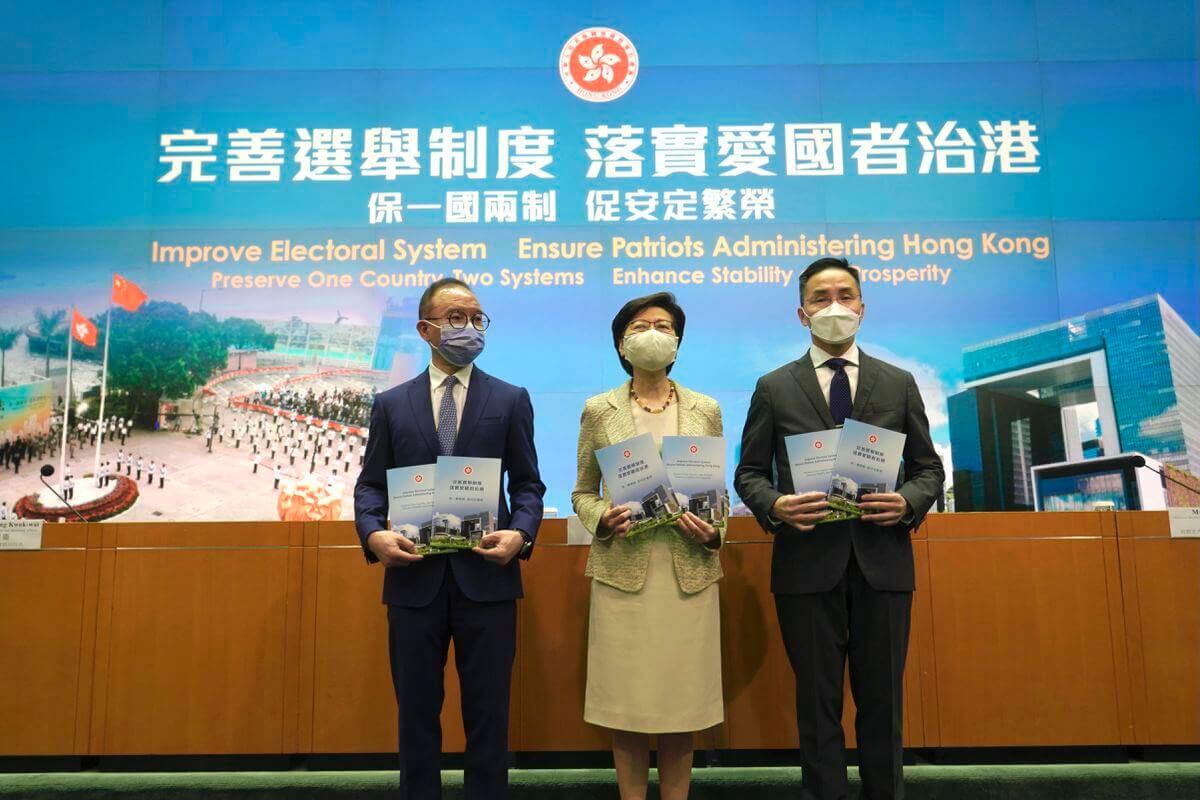Beijing has approved a package of sweeping legislative changes to Hong Kong’s electoral system, further shutting out pro-democracy forces from the semi-autonomous territory’s legislature.
Branded as measures to “improve” existing electoral regulations in the city with an aim of ensuring the participation of true “patriots” in its governance, the amendments to the Basic Law—which were passed during a session of the National People’s Congress Standing Committee (NPCSC) on Tuesday—include a reduction in the number of democratically elected seats in the legislature and the establishment of a vetting committee to pre-approve potential candidates. The move comes more than nine months after the imposition of the national security law in Hong Kong.
“It’s a very sad day for Hong Kong. The election system is completely dismantled,” said former lawmaker and Democratic Party member Emily Lau. “They are going to get rid of opposition voices because, under this new system, which is so oppressive and restrictive, I don’t think any self-respecting individual will want to take part,” she added.
Per the new rules, the 70-seat legislature (LegCo) will be expanded to 90 seats, of which only 20 will be elected by the general public. Currently, half of the LegCo is democratically elected. 40 members will be selected by the Election Committee (which has so far been responsible for electing the city’s chief executive and is dominated by Beijing loyalists), and the remaining seats will go to 30 lawmakers in functional constituencies, which include professional or special interest groups, such as commerce, industrial, accountancy or education.
The Election Commission is being reconfigured as well and will see an increase in its membership from 1,200 to 1,500. According to Tam Yiu-chung—Hong Kong’s only delegate to the NPCSC—the body will now feature more patriotic groups, as well as members of the Chinese People’s Political Consultative Conference and other national organisations. Moreover, District Council seats—which are largely controlled by the pro-democracy camp—will be scrapped from the body and instead replaced pro-establishment municipal bodies, such as district fire safety and crime-fighting committees.
“With the enlargement, increased number of sectors, adjusted subsectors and renewed functions, the Election Committee will have a broader base and be more representative of society, leading to more balanced participation from people from all walks of life,” said Zhang Yong, deputy head of the Legislative Affairs Commission of the NPC Standing Committee.
As for the vetting process for contenders, Chief Executive Carrie Lam said that a new “Candidate Eligibility Review Committee” would be established to undertake the evaluations. The body is expected to be led by Lam herself and will be aided by the police national security unit, who will be responsible for conducting stringent background checks on the individuals. Though she dismissed any concerns about single-handedly disqualifying hopefuls or favouring some over others by saying that the public would be free to judge the body’s decisions, the new guidelines ensure that the committee’s orders cannot be challenged through any judicial review or appeal process.
According to a statement by the Hong Kong and Macao Affairs Office of the State Council, the overhaul was widely supported by the city’s residents. “Plugging loopholes and defects in the HKSAR’s current electoral system and improving methods for the selection of the HKSAR chief executive and the formation of the LegCo in a systematic manner are the common aspirations of the Chinese people, including Hong Kong compatriots,” it said in a statement. Meanwhile, LegCo member Chan Han-pan said that it was “quite obvious” that Hong Kong residents hoped for a stable society, and for patriots to administer the territory.
China Approves Sweeping Changes to Hong Kong’s Legislature
The amendments include a reduction in the number of democratically elected seats in the LegCo and the establishment of a vetting committee to pre-approve potential candidates.
March 31, 2021

Hong Kong Constitutional and Mainland Affairs Erick Tsang Kwok-wai, Chief Executive Carrie Lam and permanent Secretary for Constitutional and Mainland Affairs Roy Tang. SOURCE: ASSOCIATED PRESS
